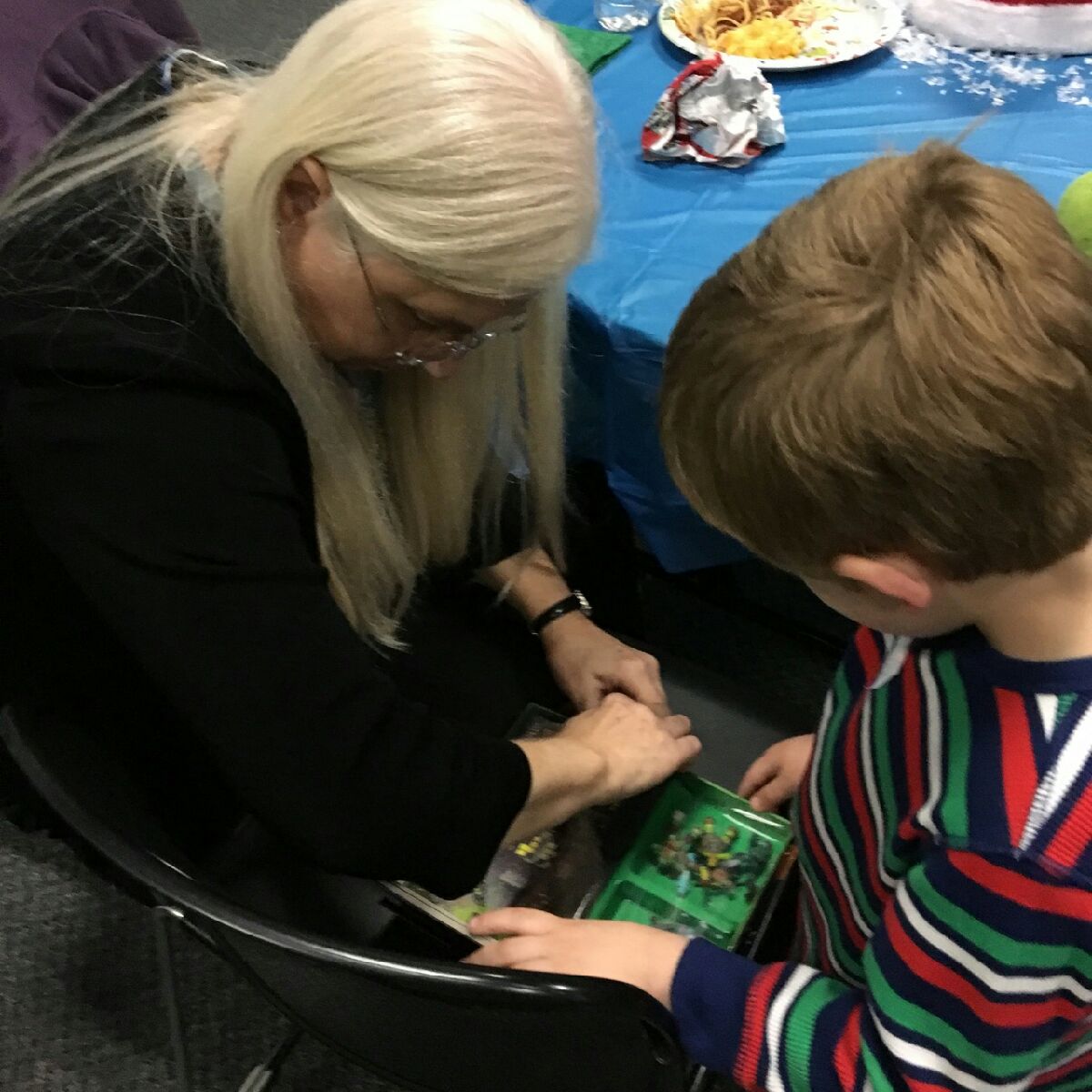
This article was contributed by Terry Fetzer, who is an Autism Resource Specialist in the Eastern region and has a son and a grandson with autism.
Most of us remember what a miracle it was when we became a parent of a child. The years pass, and now your child is an adult having a child, and the memories flood back. As an excited grandparent, you celebrate the birth of your grandchild with the parents. As the child grows, differences begin to show up in the development of communication, joint attention, playing with objects, and responding to others. The usual milestones are not being met, and the parents seek help. After evaluations, your grandchild receives a diagnosis: Autism Spectrum Disorder. You’re faced with the reality that your precious grandchild has special needs. The emotional rollercoaster begins to takes over. You go through a grieving period as you begin to process how this will affect the lives of your child and their spouse. The love you feel is strong, and they will need you now more than ever. Your heart aches, wondering how they will manage; you know how much time and energy it has taken over the years to raise your own children. The challenge as a grandparent of a child on the autism spectrum begins to sink in. What does this really mean? You are afraid that you will not be able to keep up with the demands that will come up day after day. You take a deep breath! You decide you will have the courage to continue, one day at a time. With strength and support from each other, your family begins the journey.
You can help your child
Love your child and try to listen before talking. Be kind and allow your son or daughter to ask for help instead of jumping in and trying to fix things in a way you think is best. This is their child, and as adults, they need your love, support, and guidance, not your control over their lives. Respect their decisions even you would do something different.
Understand that it will take some time to establish a routine that will work for the family. Try to use the strategies and schedules that they have worked on to maintain consistency. It is OK to share suggestions and let them know if you do not understand something, but please try first to follow their lead. They will be tired, and you being on board with their routine will help with transitions and their anxiety. This helps the whole family.
Be helpful and let them know when you are available to go to the store, fix a meal, care for the other children, and help around the house. Even taking the kids for an hour or so can provide a break they will appreciate very much.
Keep encouraging them and let them know that you are cheering them on. Use praise to lift them up. Be positive look for the progress they are making each day.
What I have learned over the years
Educate yourself by finding out about the disability. Ask your children to share resources they have found. Find local resources and share the information with your children. Share articles and news you have heard to show you are actively wanting to understand your grandchild.
If possible and okay with the parents, it is helpful to accompany your grandchildren to meetings, doctor visits, therapy sessions, etc., so you can talk about how things are going and ask questions if you do not understand. The more you learn, the better support you can be for the family.
Take care of yourself and balance your time with your husband and your extended family. Share your love and attention with all of your grandchildren. Try not to favor or ignore the one with the disability. Love them all as equally as you can. Every family member is a vital part of the support system for the family. You need each other.
Try to connect with support groups and other people in your community who have grandchildren with a disability. Spend some time together to share experiences. It is comforting to know you are not alone on the journey with your children and grandchildren. You also can learn from each other and be a positive support during the good and difficult times.
How to support your grandchild
Love your grandchild as a person first, no matter what. Accept them for who they are. Meet them where they are. Learn what they like and play with them. Enjoy what time you have together.
When they get upset, try to redirect them. Keep language clear, concise, and to a minimum. Give them time to calm down and get themselves together as much as possible. Don’t take personally anything that is said in an explosive moment. Always see this as a symptom, not who they really are as a person.
Help them learn to trust you and feel you are always a safe person to whom they can turn whenever they need help. Give them support and help in a way that is loving, kind, and consistent.
Remember, our grandchildren are unique individuals. They need and deserve the best life possible. Be a positive influence and let them know your love grows with them each and every day.
Terry Fetzer can be reached at tfetzer@autismsociety-nc.org or 252-670-5275.
Tags: ASNC, autism, autism grandparents, autism society of NC, Autism Society of North Carolina, Autism spectrum, Autism Spectrum Disorders, autism support Go back
